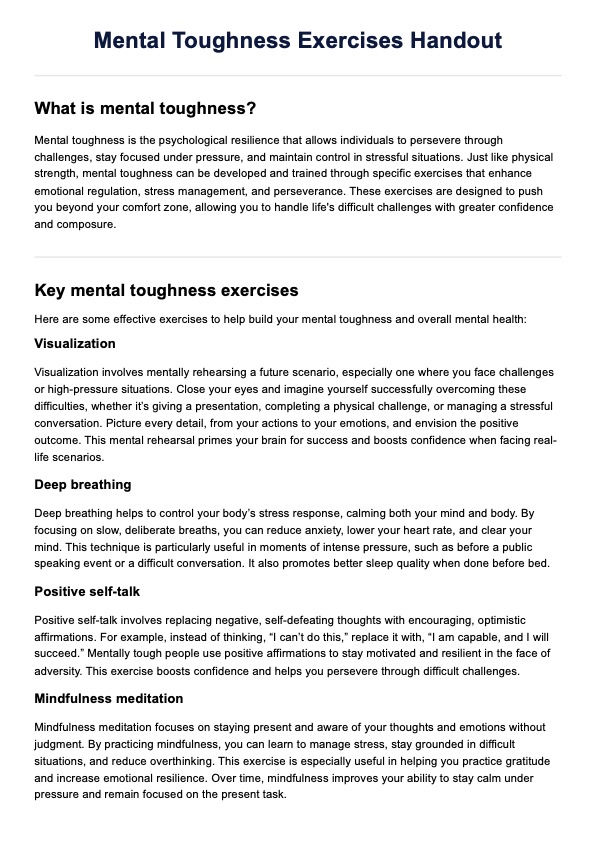The 4 C's of mental toughness are Control, Commitment, Challenge, and Confidence. These core elements help individuals manage stress, stay dedicated to their goals, embrace challenges, and maintain self-belief in difficult situations.

Mental Toughness Exercises PDF
Discover effective mental toughness exercises in Carepatron's detailed PDF guide. Help patients in enhancing their mental strength today.
Mental Toughness Exercises PDF Template
Commonly asked questions
Training mental toughness involves practicing resilience-building exercises like visualization, deep breathing, and positive self-talk. By pushing yourself beyond your comfort zone and facing physical and mental challenges, you can gradually develop greater mental strength.
Exercises such as mindfulness meditation, practicing gratitude, and regular physical activity can significantly improve mental health. These activities reduce stress, promote emotional well-being, and help build both mental and physical strength.
EHR and practice management software
Get started for free
*No credit card required
Free
$0/usd
Unlimited clients
Telehealth
1GB of storage
Client portal text
Automated billing and online payments











